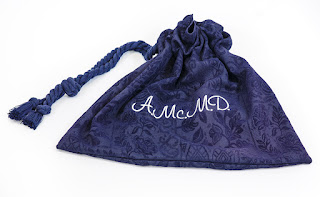------------ooaa------------
Son Thomas, a member of the wigged fraternity, aka barristers, let me know that those remaining elite barristers termed Queen’s Counsel are now to be known as King’s Counsel, consequent upon the death of Queen Elizabeth 11.
------------ooaa------------
Some notes and comments (this mazy be of special interest to you in the US, Ron) . . .,
------------ooaa------------
New South Wales has what is known as a divided profession: lawyers can be barristers or solicitors. Some Australian States have a fused profession where one can be both at the one time.
Barristers generally specialise in courtroom advocacy and litigation. They take on the more complex and bigger cases, draft legal pleadings and provide expert legal opinions.
Solicitors also have rights of appearance in courts and attend to a lot more office work in varied fields (whether crime, litigation, conveyancing, commercial law etc), as well as the filing of pleadings, case preparation and having greater client contact.
Generally clients see a barrister through a solicitor although there are now limited rights of direct access to barristers. An analogy is that of a medical general practitioner and a specialist.
Barristers are also characterised by wearing wigs and gowns in the higher courts, suits in the lower courts. Most people will be familiar with English barrister Rumpole of the Bailey . . .
Senior barristers, the elite, the SAS of the wigged brigade, can be so appointed and designated, allowing them to put initials after their names, charge more and usually appear with a barrister who is not so appointed, known as “junior barristers”.
You can also tell the difference by the traditional cloth drawstring bags they carry to transport their books, gown and wig and other barrister clothing – blue for juniors, red for senior counsel (counsel being another word for barrister), with initials embroidered:
Which brings me to the point of this post:
Senior counsel are named for the ruling monarch: King’s Counsel or Queen’s Counsel, entitling them to put KC or QC after their name. The titles of Queen’s and King’s Counsel are a reflection of Australia’s British heritage, including a legal system grounded in the United Kingdom’s Westminster system.
Senior counsel so appointed are appointed by the Australian Bar Association.
Those who already have the title of QC, will now automatically become KCs.
In 1993 in NSW the title Queen’s Counsel was replaced with the term Senior Counsel, persons appointed from then on putting SC after their name. This happened Australia wide as part of the movement towards becoming a republic, with a lot of organisations also dropping the term Royal from their names.
However, there has been dissent with some States wanting to return to the old ways. Queensland reintroduced Queen’s Counsel in 2013, Victoria did so in 2014. South Australia has also reverted to the past terminology.
Some counsel in NSW also want to restore the old title, maintaining that it is more synonymous with having reached the pinnacle of the profession than the term Senior Counsel, that it commands greater respect and is more widely known. Because the term is widely used in other countries, such as parts of Asia and also the United Kingdom, it is also thought that it is more widely recognised.
At present, the terminology across Australia is not uniform, a shortcoming.
A few weeks ago I posted the following in a Funny Friday post, it being more apt now . . .







No comments:
Post a Comment
Note: Only a member of this blog may post a comment.